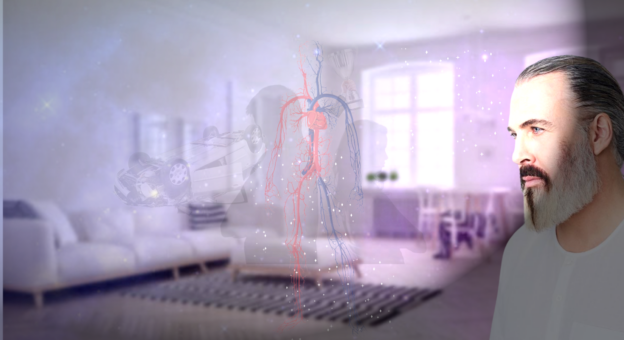Across cultures, shamans, mystics, and spiritual leaders are revered for their perceived ability to commune with spirits, foresee future events, or access hidden knowledge through clairvoyance. These individuals are often considered mediums or channels capable of transcending ordinary consciousness to access higher realms of understanding or divine guidance. But what is clairvoyance truly?
What does the term clairvoyance mean?
The word “clairvoyance” has its origins in the French language. It stems from two French words: “clair,” meaning clear, and “voyance,” derived from “voir,” which means to see. When combined, “clairvoyance” literally translates to “clear seeing” or “clear vision.”
The term gained prominence in the late 18th century, primarily within spiritualist circles, to describe the purported ability to perceive information or events beyond the natural range of human senses. It denotes an extrasensory perception that allows individuals to view and gain knowledge through nonphysical means about objects, people, events, or information without using the ordinary senses. This French-originated term has since become widely used in English and other languages to describe psychic abilities or the direct perception of the unseen.
Is Clairvoyance real as defined by science?
Studies have explored human cognition and perception that might indirectly relate to aspects of what could be perceived as clairvoyant abilities, albeit not explicitly labeled as such. These studies often investigate areas like intuition, precognition, or the subconscious mind, offering interesting insights that could potentially relate to the concept of clairvoyance.
One area of research that might have connections to aspects of clairvoyance involves the study of intuitive decision-making. Scientists have looked into how the brain processes information to make decisions seemingly beyond the scope of conscious reasoning. Some experiments suggest that the brain can unconsciously gather and process information, leading to seemingly intuitive choices. For instance, studies in neuroscience have shown that the brain’s unconscious processing can anticipate future events or outcomes before a person is consciously aware of them.
Future time is now?
The concept of the future existing before our conscious awareness of it can be perceived through various lenses. From a neuroscientific standpoint, the brain operates in a way that processes information at both conscious and subconscious levels. Unconscious cognitive processes might anticipate events or outcomes before they reach conscious awareness, creating a semblance of future existence. This could be attributed to the brain’s ability to perceive patterns, gather subtle cues, and make predictive inferences based on prior experiences, all without conscious realization.
Moreover, physics and philosophy contemplate the nature of time as a dimension where past, present, and future might coexist. Theories like Einstein’s spacetime suggest a multidimensional continuum, questioning the linear flow of time. Quantum physics, with its probabilistic nature, implies a universe where all possibilities potentially exist simultaneously, encompassing past, present, and future. Thus, the future might exist in some form beyond our conscious awareness due to the complex interplay of our cognitive processes, the nature of time, and the mysteries of existence itself.
Clairvoyance as a spiritual faculty
Perhaps the most diffuclt aspect of developing clairvoyance is boredom. A willingness to be bored is firstly required, then irritated by mental distraction followed by the monotony of observing how information is organzied within awarenesss. These are the steps. What follows is a sudden openining to the unknown. – Jack Rourke, author, The Rational Psychic”
To explain clairvoyance as a spiritual faculty one must first distinguish between the observed and that which is observed. What I mean to say is, if clairvoyance is a method for seeing information through the mind, then what is it that’s being seen and where is it if it is separate from the clairvoyantly seeing individual?
The source of clairvoyant information is commonly referred to as the Akashic record or simply the Akasha. What is Akasha?
The term “Akasha” originates from Sanskrit, an ancient Indo-European language. In Sanskrit, “Akasha” (also spelled “Akash” or “Aakash”) refers to the fundamental, ethereal element or space that pervades the universe. It is often translated as “ether” or “sky” in English.
In metaphysical and spiritual contexts, Akasha represents the subtlest of the five classical elements in Hindu and Buddhist philosophies. These elements—earth, water, fire, air, and ether—constitute the building blocks of the material world, with Akasha being the most elusive and transcendent element. It’s believed to be the subtlest medium through which all phenomena arise, exist, and dissolve.
Metaphysically, Akasha is perceived as a cosmic repository that records every event, thought, emotion, and action that has ever occurred in the universe. It’s thought to contain the collective consciousness, serving as a storehouse of information or a cosmic memory bank, often referred to as the “Akashic Records.” Accessing these records through meditation or other spiritual practices is believed to provide insights, guidance, or information about past, present, and potential future events.
In some metaphysical teachings, the Akashic Records are described as an energetic database that holds the vibrational imprints of all experiences, serving as a resource for spiritual growth, healing, and understanding the deeper truths of existence. Practitioners seeking guidance or exploration of past lives often claim the Akashic Records as a source of profound wisdom and insight.
Developing clairvoyance
Developing clairvoyance is often seen as a process that involves enhancing one’s intuitive or psychic faculties. Here are some methods purported to aid in the development of clairvoyance:
1. Meditation: Regular meditation is often considered foundational for developing any psychic ability. It helps quiet the mind, enhances focus, and promotes heightened awareness. Practices that focus on visualization or accessing deeper states of consciousness can be particularly beneficial.
2. Visualization exercises: Engaging in exercises that involve visualizing images, symbols, or scenes can help strengthen the mind’s ability to perceive beyond the physical senses. These exercises might involve imagining specific colors, shapes, or scenes and gradually expanding the details over time.
3. Strengthening intuition: Paying attention to and trusting intuitive nudges or gut feelings can help refine intuitive abilities. Actively practicing intuition in daily life, such as guessing who is calling before checking the phone or predicting simple future events, might assist in honing these skills.
4. Developing sensory awareness: Working on enhancing awareness of all senses, including subtle sensory cues, can contribute to developing clairvoyant abilities. This involves being more attentive to details in the environment, feelings, and sensations.
5. Energy work: Practices like Reiki, Qigong, or other forms of energy healing focus on manipulating or channeling subtle energies within the body. Some practitioners believe that working with energy can unlock and enhance psychic abilities, including clairvoyance.
6. Working with tools: Some individuals find that using tools like tarot cards, crystals, or scrying (using mirrors, water, or other reflective surfaces for divination) can help amplify their clairvoyant abilities. These tools might act as focal points for intuition and inner vision.
7. Dream journaling: Keeping a dream journal to record and interpret dreams can aid in developing clairvoyance. Dreams are believed by some to be a conduit for psychic insights and messages from the subconscious or spiritual realms.
8. Practice and patience: Developing clairvoyance, like any skill, often requires consistent practice, patience, and belief in one’s abilities. It’s essential to approach these practices with an open mind and without putting undue pressure on oneself.
When attempting to develop clairvoyance it is important to remain humble. Remember results will initially only be subjective experiences. For this reason, remain optimistic and curious without buying into everything you “see”. Before long, if the conditions are correct, information can impress upon the mirror of personal awareness if one’s mind is stable and calibrated to the frequency of the impersonal akasha allowing a transfer of information akin to a cosmic download.☼


